13 ways bioscience is helping fight climate change
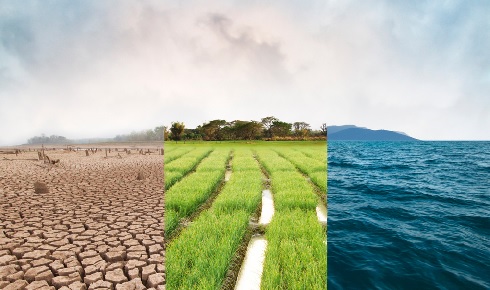
October 4th
Biologists have long been at the forefront of efforts to understand how a changing climate could impact life on Earth. But as greenhouse gas emissions continue to rise, bioscientists, together with colleagues in other fields, are now developing ways to limit the damage of climate change – using living systems to reduce emissions, remove greenhouse gases from the atmosphere, and to help crops, animals, ecosystems and people adapt to a warming world.
It is estimated that the biotechnology sector alone could help remove three gigatonnes of carbon dioxide from the atmosphere every year by 2030[1] – that's roughly half of the total annual emissions of the USA. Improving the management of wetlands, peatlands and forests could lock away even more carbon each year[2]. And data from biological research is already helping us prepare for life in a warmer world[3].
From conservation to CRISPR - here are over a dozen ways biology is helping to fight climate change.
1 BIOENERGY AND BIOMATERIALS
Biologists are developing greener ways to fuel the planet’s energy requirements, replacing petrochemicals and emission-heavy materials like concrete with next generation bio-fuels and bio-based materials. Research from across the life sciences will be key to developing bio-products with as small a water, carbon and land footprint as possible.
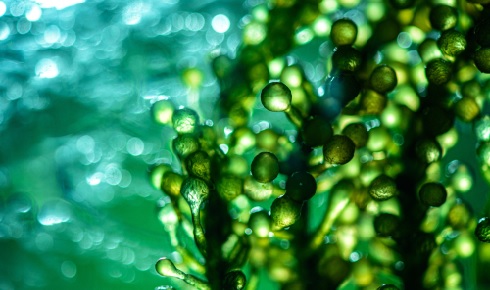 Examples include construction materials grown from fungi, oil-like biofuels produced from algae, and new bio alternatives to plastics and oil-derived chemicals.
Examples include construction materials grown from fungi, oil-like biofuels produced from algae, and new bio alternatives to plastics and oil-derived chemicals.
2 AGRICULTURE & FOOD
Global food production accounts for one-quarter of all global greenhouse gas emissions, and biologists are helping farmers grow more productive, climate-friendly crops and livestock. As climate change threatens the global supply of food, biologists are also working to improve food security, make diets more nutritious, and reduce food spoilage and waste.
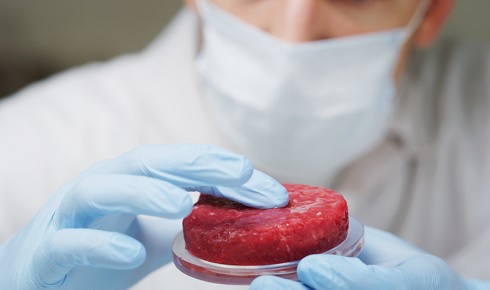 New strains of rice could drastically reduce the amount of methane produced by the world’s rice paddies; so-called ‘cellular agriculture’ aims to replace farmed animals with meat and other animal products grown using tissue culturing technology and bio-reactors; and the new bioscience-based practice of ‘carbon farming’ is helping farms absorb more greenhouse gas than they produce.
New strains of rice could drastically reduce the amount of methane produced by the world’s rice paddies; so-called ‘cellular agriculture’ aims to replace farmed animals with meat and other animal products grown using tissue culturing technology and bio-reactors; and the new bioscience-based practice of ‘carbon farming’ is helping farms absorb more greenhouse gas than they produce.
3 ECOLOGICAL RESEARCH
For decades ecologists have been monitoring the impact of a changing climate on the natural world to help understand and predict future effects on wildlife, ecosystems, and human health. This research underpins efforts to protect the ecosystems that support us, and informs the best ways to manage natural carbon sinks.
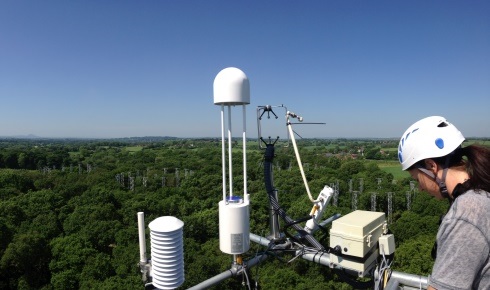 Research by Australian scientists has shown how keeping shark populations healthy can help marine ecosystems store vast amounts of carbon; The Biologist recently explored how ecologists at the Hawaii Institute of Marine Biology have developed a simple way to help regrow coral killed by climate change faster than it would do naturally; and scientists at the Birmingham Institute of Forest Research (BIFoR) have even created a giant facility that can bathe a section of woodland in the C0₂ concentrations expected on Earth in 2050, to find out how forest ecosystems will cope with our planet’s changing atmosphere.
Research by Australian scientists has shown how keeping shark populations healthy can help marine ecosystems store vast amounts of carbon; The Biologist recently explored how ecologists at the Hawaii Institute of Marine Biology have developed a simple way to help regrow coral killed by climate change faster than it would do naturally; and scientists at the Birmingham Institute of Forest Research (BIFoR) have even created a giant facility that can bathe a section of woodland in the C0₂ concentrations expected on Earth in 2050, to find out how forest ecosystems will cope with our planet’s changing atmosphere.
4 MOLECULAR BIOLOGY & GENE EDITING
Advances in our understanding of the chemistry of life, and the application of gene-editing technology such as CRISPR, is allowing scientists to grow organisms that are adapted to a changing climate, or with characteristics that could help us fight climate change.
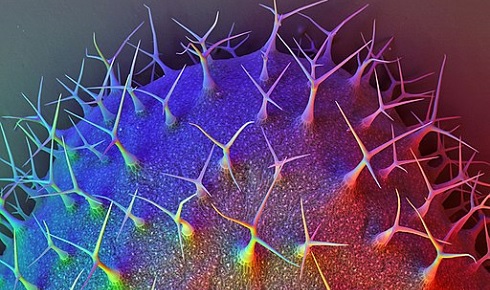 Biologists are exploring how to engineer trees with ‘turbo-charged’ photosynthesis, and plants that have extra-large and fast-growing roots – both with the aim of helping plants lock away more carbon, faster. As many areas of the world become more arid, biologists are using gene-editing to develop drought-resistant crops.
Biologists are exploring how to engineer trees with ‘turbo-charged’ photosynthesis, and plants that have extra-large and fast-growing roots – both with the aim of helping plants lock away more carbon, faster. As many areas of the world become more arid, biologists are using gene-editing to develop drought-resistant crops.
5 SYNTHETIC BIOLOGY
The relatively new science of synthetic biology creates new biological systems from bespoke arrangements of genes and other components found in cells from across the kingdoms of life. These new systems could help fight climate change in many ways, from microbes that can remove pollution from the environment or produce animal and plant products, to redesigned plants with artificial cell organelles to help them suck up carbon.
6 CONSERVATION AND RESOURCE STEWARDSHIP
Conservationists around the world work tirelessly to restore and stabilise populations endangered by habitat loss or impacted by climate change, and protecting or restoring natural habitats can also help sequester huge amounts of carbon. Research from conservation projects helps inform decisions on the best location for areas to be protected from human activity – from rewilded agricultural land to vast marine nature reserves.
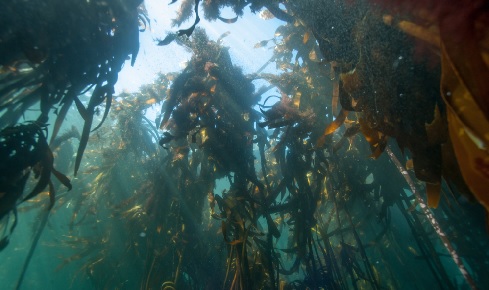 Conservationists around the world are helping protect and expand underwater carbon stores such as mangroves, kelp forests and seagrass pastures.
Conservationists around the world are helping protect and expand underwater carbon stores such as mangroves, kelp forests and seagrass pastures.7 CLIMATE CHANGE AND HEALTH
Research from many different subdisciplines of biology is helping us prepare for the effects of climate change on human health and wellbeing. It's not just about things getting hotter - although that will be a problem - climate change is expanding the regions where insects spread diseases like malaria and dengue. Researchers also believe that a combination of climate change and environmental degradation is increasing the risk of pandemics and will have knock-on effects on human wellbeing more generally.
8 NATURE-BASED SOLUTIONS
Biologists are at the heart of new strategies for the management of natural resources that will help sequester carbon, improve biodiversity and reduce the impact of climate change.
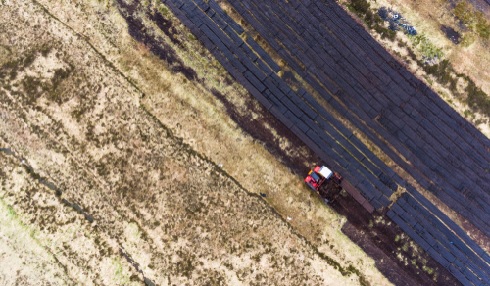 As part of a recent RSB event on the climate emergency, soil scientist Professor Pete Smith explained the enormous positive impact changes in land use could have on our world over the next century. The British Ecological Society recently published a major report on nature-based solutions for the UK; and Kew Gardens recently outlined its plans for a focus on nature-based solutions to climate change.
As part of a recent RSB event on the climate emergency, soil scientist Professor Pete Smith explained the enormous positive impact changes in land use could have on our world over the next century. The British Ecological Society recently published a major report on nature-based solutions for the UK; and Kew Gardens recently outlined its plans for a focus on nature-based solutions to climate change.9 NATURAL CAPITAL
Life scientists, working in combination with economists, are working to ensure elements of the natural environment which provide goods and services to people are valued by Governments and businesses as assets worth protecting.
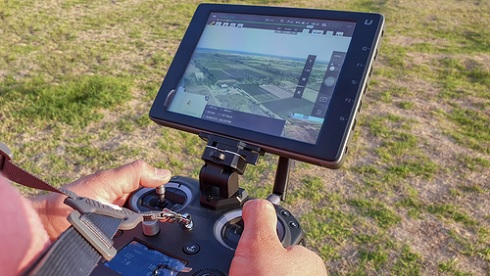 The Natural Capital Initiative, a partnership between the RSB, the UK Centre for Ecology and Hydrology and the James Hutton Institute, recently held an event to discuss the Dasgupta Review, a major report on the economics of biodiversity.
The Natural Capital Initiative, a partnership between the RSB, the UK Centre for Ecology and Hydrology and the James Hutton Institute, recently held an event to discuss the Dasgupta Review, a major report on the economics of biodiversity.10 BIOGEOENGINEERING
For many years the world’s biggest greenhouse gas emitters have failed to meet targets set at international climate change summits like COP26. Some scientists believe more speculative technological solutions may be needed to reduce carbon dioxide levels or cool the Earth on a grand scale. Biologists, in collaboration with scientists in other fields including engineers and geologists, are exploring ways that large-scale natural systems could be modified to prevent or reverse the worst effects of a warming climate.
Since the late 1980s biologists have discussed the possibility of ‘greening the oceans’ – fertilizing the Earth’s vast marine areas with iron to encourage blooms of photosynthetic algae. This could remove vast amounts of carbon dioxide from the sea and atmosphere, but the knock-on ecological consequences are hard to predict.
11 OUTREACH & ENGAGEMENT
Biologists are increasingly stepping out of the lab and onto public platforms to explain the impact of climate change on the natural world and discuss with people how best to tackle the issue. The RSB and its member organisations run a variety of events and initiatives to inspire interest in life science and raise awareness of environmental issues such as climate change.
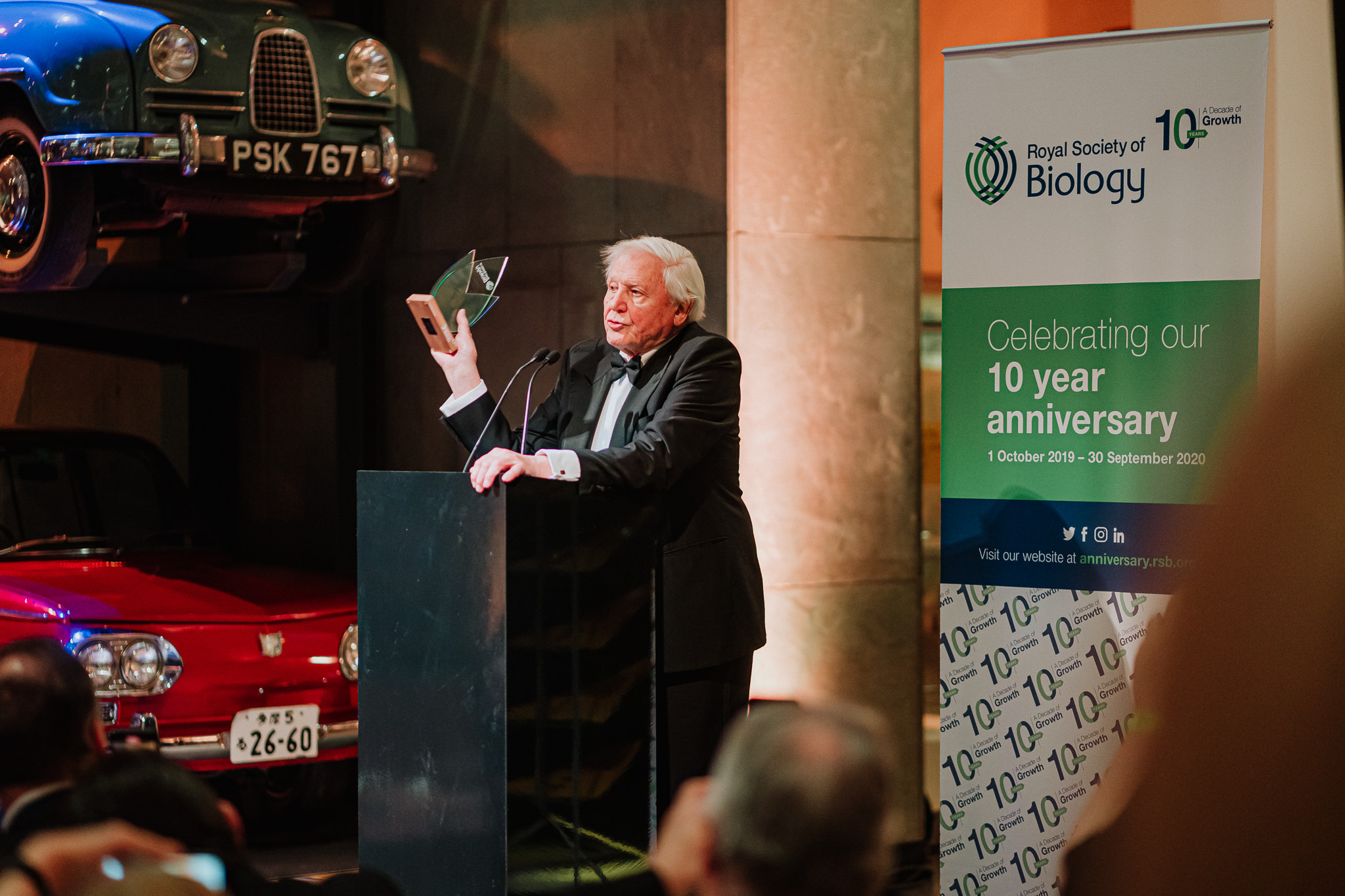 The RSB recently honoured Sir David Attenborough with a lifetime achievement award for his outstanding work to raise the profile of biology and the threats facing the natural world.
The RSB recently honoured Sir David Attenborough with a lifetime achievement award for his outstanding work to raise the profile of biology and the threats facing the natural world.12 POLICY AND ADVOCACY
The RSB and other scientific organisations facilitate discussions on climate change between the research community, industry and policy-makers, and respond to Government consultations on behalf of the life science sector. Scientific organisations, bioscience institutions and individual scientists are a key part of campaigns to ensure the climate change emergency is always on the agenda for business, public and Government.
 The RSB has recently sent letters to the Prime Minister about the climate emergency ahead of COP26 and to the Treasury ahead of the 2021 Budget, stressing the importance of climate solutions that do not compromise biodiversity. For more information on the work the RSB is doing on climate change check out the Society’s dedicated environment webpage and policy resource library.
The RSB has recently sent letters to the Prime Minister about the climate emergency ahead of COP26 and to the Treasury ahead of the 2021 Budget, stressing the importance of climate solutions that do not compromise biodiversity. For more information on the work the RSB is doing on climate change check out the Society’s dedicated environment webpage and policy resource library.13 TEACHING
Teaching and learning about biology helps to inspire the next generation to care, think, innovate and work together to protect and improve the world we live in. Biology teachers educate young people about the importance and urgency of the climate emergency, and perhaps most importantly, encourage and inspire the next generation of climate-fighting biologists.
 The RSB is committed to supporting teachers and the study of biology. This month the RSB is launching a major new framework for a 5-19 biology curriculum, which includes significant areas of focus relevant to threats to the environment and to health.
The RSB is committed to supporting teachers and the study of biology. This month the RSB is launching a major new framework for a 5-19 biology curriculum, which includes significant areas of focus relevant to threats to the environment and to health.1) BIO Biotech Solutions for Climate Change Report 2020.
2) Griscom, B.W. et al. Natural climate solutions. Proceedings of the National Academy of Sciences 114(44), 11645-11650 (2017).
3) Adapting to Climate Change: People and Biology. Emerg Top Life Sci 3(2), 107–113 (2019).
Tom Ireland MRSB is editor of The Biologist, the magazine of the Royal Society of Biology.


